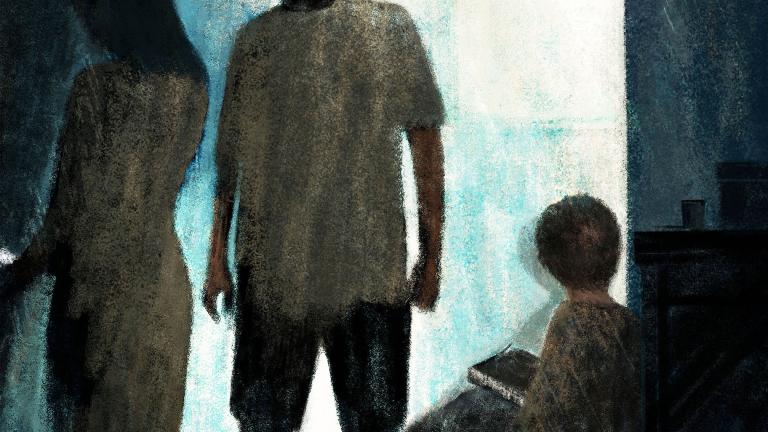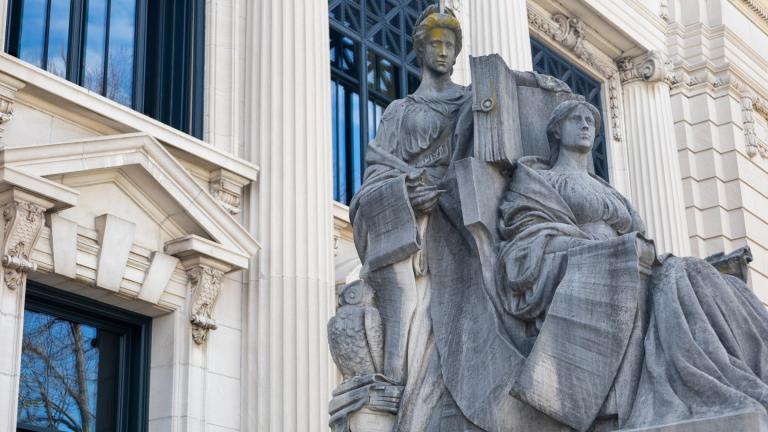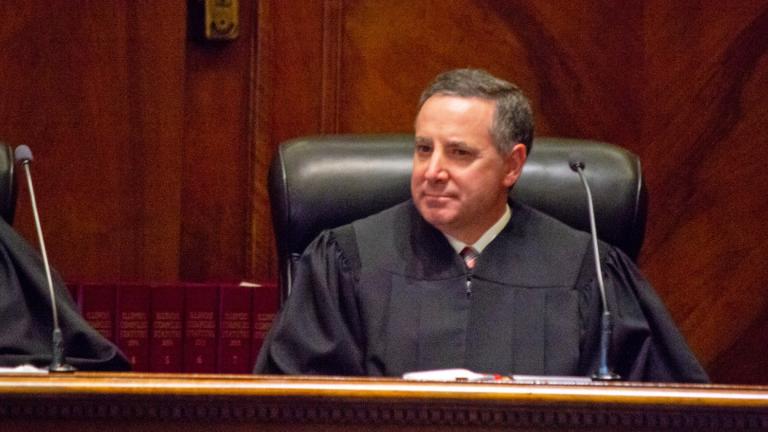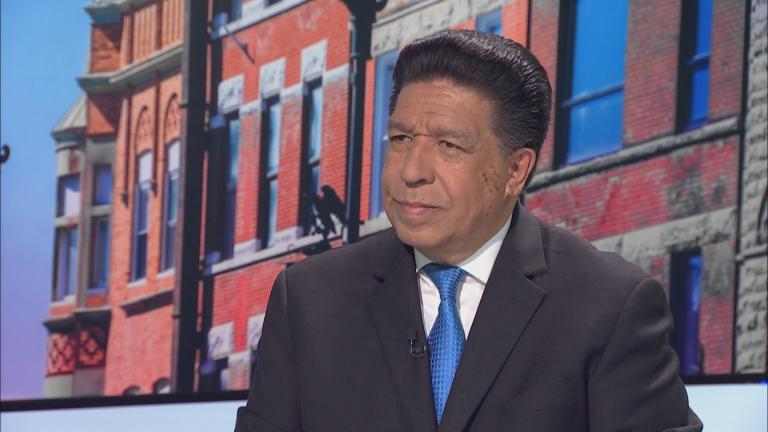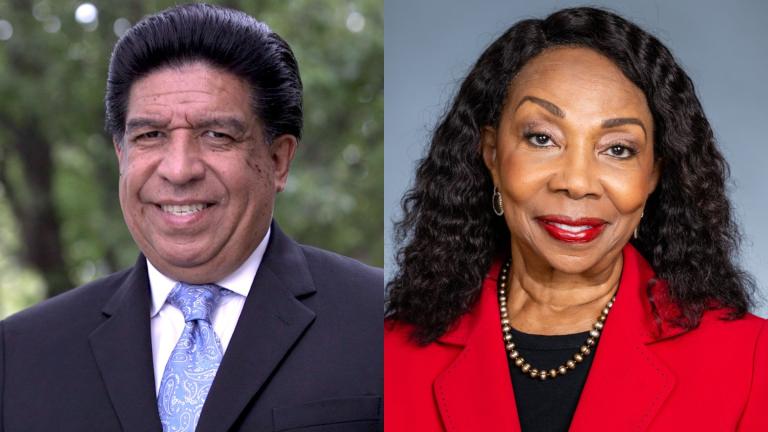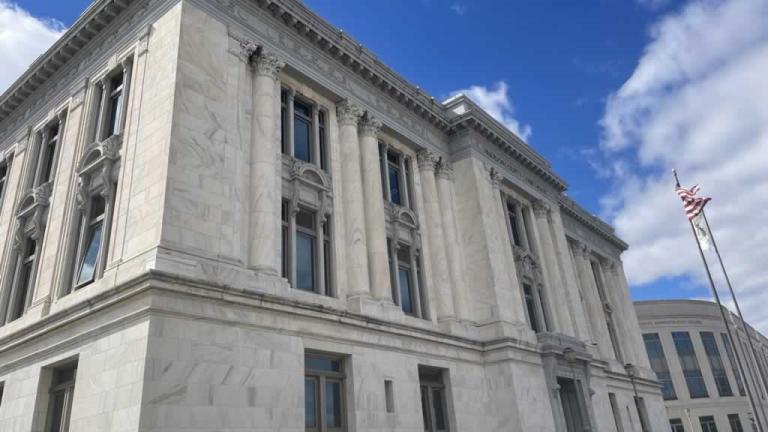The fate of an open Illinois Supreme Court seat long held by Justice Charles Freeman, who died Monday at the age of 86, has taken on added significance for those who considered him a mentor and trailblazer.
In 1990, Freeman became the first African American to sit on the state’s high court. Until his resignation in 2018, he was also the only African American justice on the court.
This election cycle will decide who will next occupy the First District seat that Freeman held for nearly three decades.
Given that six other justices on the court are white (including the other two who represent Cook County, Chief Justice Anne Burke and Justice Mary Jane Theis), diversity is a key issue in the race.
“Unfortunately we’re still talking about an African American seat. I mean this is 2020. But we need an African American or we need a person of color on the court. Seven justices, six are white: three white men, three white women. I think to do anything other than have diversity on the court kinda renders the court a little less effective in building that confidence,” said Cynthia Cobbs, an appellate court judge who long served as Freeman’s clerk, including when he was the Illinois Supreme Court’s chief justice.
There’s no Republican running, so whichever Democrat voters choose in the March 17 primary is likely to win the other First District seat.
In alphabetical order, the candidates in the Democratic primary are: Cynthia Cobbs, Daniel Epstein, Shelly Harris, Nathanial Howse, P. Scott Neville, Margaret McBride and Jesse Reyes; all are currently sitting judges except Epstein, an attorney.
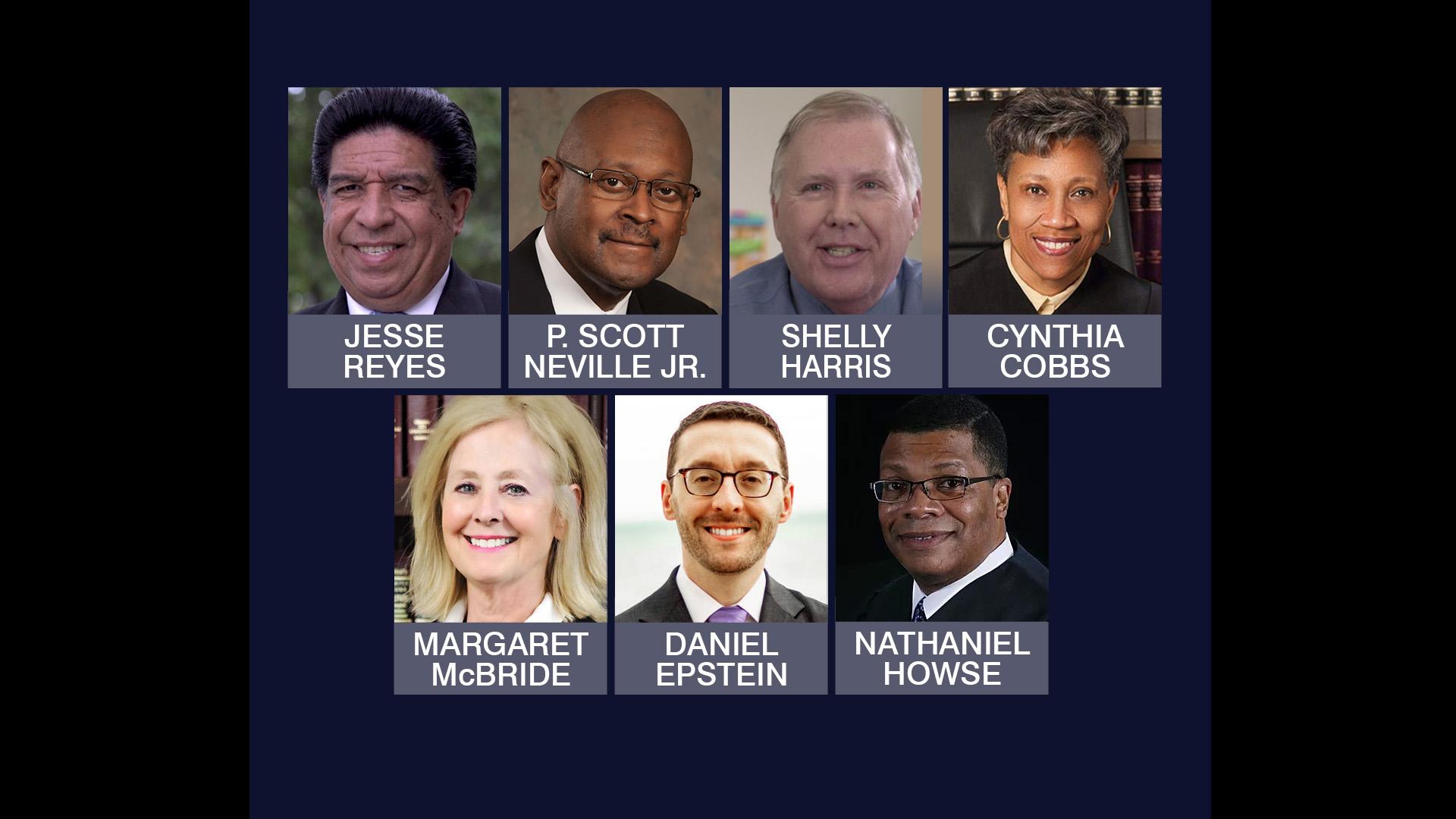
“Diversity matters. Representation absolutely matters. And it matters because we exist in a system that is vulnerable to bias and bigotry and we see that in our system. From the standpoint of someone who’s trying to reform the system for the customers of the court, it’s extraordinarily important that we focus on how to make things better for those people, which are disproportionally black and brown people, ” Epstein said.
Specifically, Epstein suggests a pilot program that would shield potential jurors’ racial identifiers to prevent people of color from being dismissed from juries. He also says the high court should do more to combat biased sentencing.
One of the candidates in the race is already on the Illinois Supreme Court; two years ago, Justice P. Scott Neville was appointed by sitting justices to fill the remainder of Freeman’s term.
“Nobody brings a Bronzeville judicial philosophy to the Supreme Court. That’s why my voice is so important,” Neville said.
Neville says that as an appellate court justice, he reversed more criminal convictions and filed more dissents than any of his peers. He also points to his body of work in his 20 months on the Illinois Supreme Court. He was the sole justice to fully dissent when the court upheld former Chicago police Officer Jason Van Dyke’s sentence for the second-degree murder of Laquan McDonald.
Neville says the principle of stare decisis holds that Van Dyke should have been sentenced for the 16 counts of aggravated battery with a firearm, which would have led to a longer sentence.
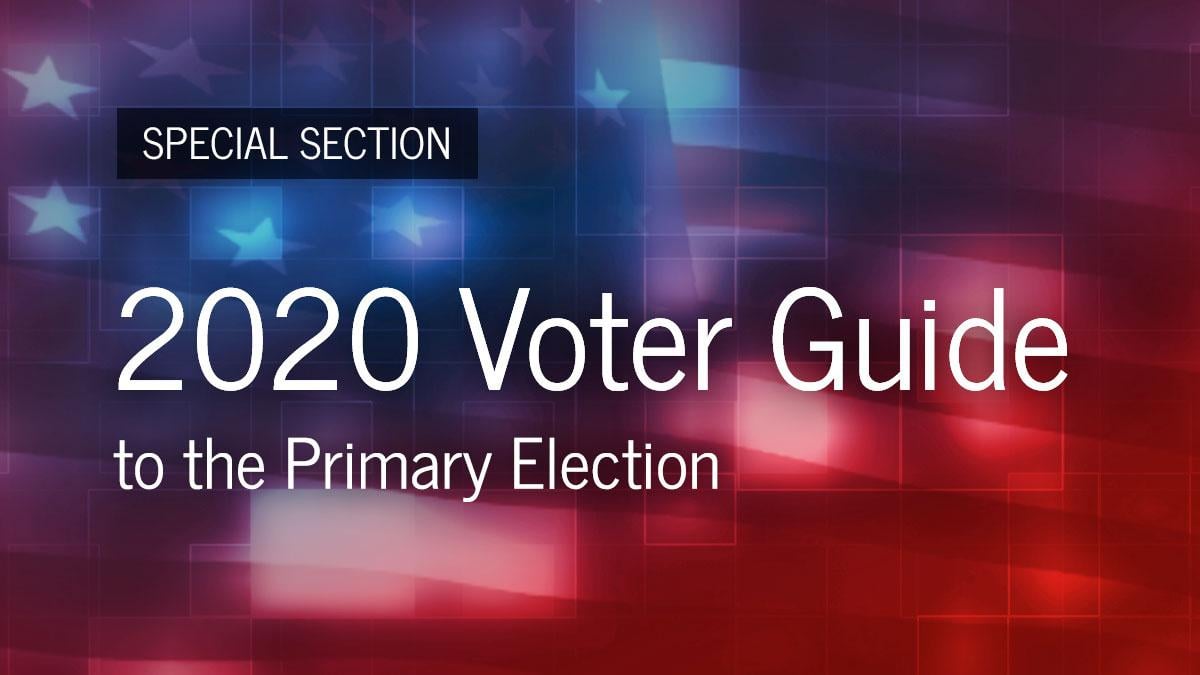 More: 2020 Voter Guide to the Primary Election
More: 2020 Voter Guide to the Primary Election
Like Neville, Appellate Justice Nathaniel Howse also says his background – he was born in Tennessee, and says as a child remembers having to sit in the back of movie theaters due to Jim Crow laws – plays a role in how he reaches judicial decisions. He also says diversity matters because people accept court decisions when they feel like they’ve been heard.
“I believe that if an individual comes through our courts, even to the highest court and they’re trying to get a decision overturned or they’re trying to get a decision overturned, they may feel that a decision is not fair if they look up there and every judge is from one ethnicity or one culture.”
Howse says part of his plan to make the courts more diverse is to open up to the process for filling judicial vacancies.
That’s also priority for Jesse Reyes, the son of a Mexican immigrant, who in 2012 became the first Latino elected to the appellate court.
Illinois has never had a Latino on the State Supreme Court.
“We live in a rainbow society and I believe that our justice system needs to reflect the rainbow that we live in. So number one what I would do is that I would make sure that the public became aware of opportunities for appointments,” Reyes said.
Reyes said he wants to establish a process that includes outreach to cultural and ethnic bar associations.
Diversity isn’t just an issue on the Supreme Court level; Reyes says he’s concerned about the total lack of representation of the South Asian, Indian and Muslim communities on the circuit court bench.
Another candidate, Appellate Justice Margaret McBride, adds that there’s no LBGTQ representation at the appellate level.
McBride authored a prominent decision, Blumenthal v. Brewer, that (while later overturned) gave same-sex couples legal rights before Illinois legalized same-sex marriage. She also says that some 30 years ago, when it was rare for a mother to be working as a judge, she was the first in Cook County Circuit Court history to get maternity leave.
“I will, if elected to the Supreme Court, try to increase diversity on the courts. One of the things that has been noticeably absent for over 200 years is the fact that women represent a majority of the population and yet at every level of government – state or federal – we do not have a representation of women. If I’m elected it will be the first time in 200 years that we actually have a majority of women on the court,” McBride said.
The campaign of Appellate Court Justice Shelly Harris did not return repeated requests from WTTW News for an interview.
But the issue of diversity came up during the Cook County Democratic Party’s slating process last August, when Chicago Ald. Jason Ervin, in his capacity as 23rd Ward committeemen, asked Harris – who is white – why he was asking for the party’s endorsement given that Democratic leaders’ desire to “convey equity across the board.”
“Why come here?” Ervin asked Harris.
“Equality is not picking out people solely based upon their color or sex. It’s not equality when you say, ‘OK, well, let two blacks here, two blacks here, and two blacks here.’ Or green or white. That’s not equality,” Harris answered. “Equality is choosing your winning candidates and supporting those who believe in diversity, who believe in equal rights for all people, regardless of their color.”
Cobbs, who in 2002 became the first woman and the first African American to serve as director of the Administrative Office of the Illinois Courts, said average citizens tend to question judicial decisions when the makeup of the bench doesn’t reflect a community.
“There’s a correlation between confidence in the courts and the makeup of the courts,” Cobbs said. “When the court doesn’t look anything like you, you tend to question. It doesn’t mean that it wasn’t fair but as a layperson coming into a court system, if nobody on the bench looks like you, you tend to question whether or not it was fair, whether or not it was equitable. And that’s a confidence issue.”
While justices on the Illinois Supreme Court have a role in making judicial appointments when there’s a vacancy, that’s not the case this time – whether there will be a person of color on the state’s high court is up to voters, Cobbs said.
Follow Amanda Vinicky on Twitter: @AmandaVinicky

